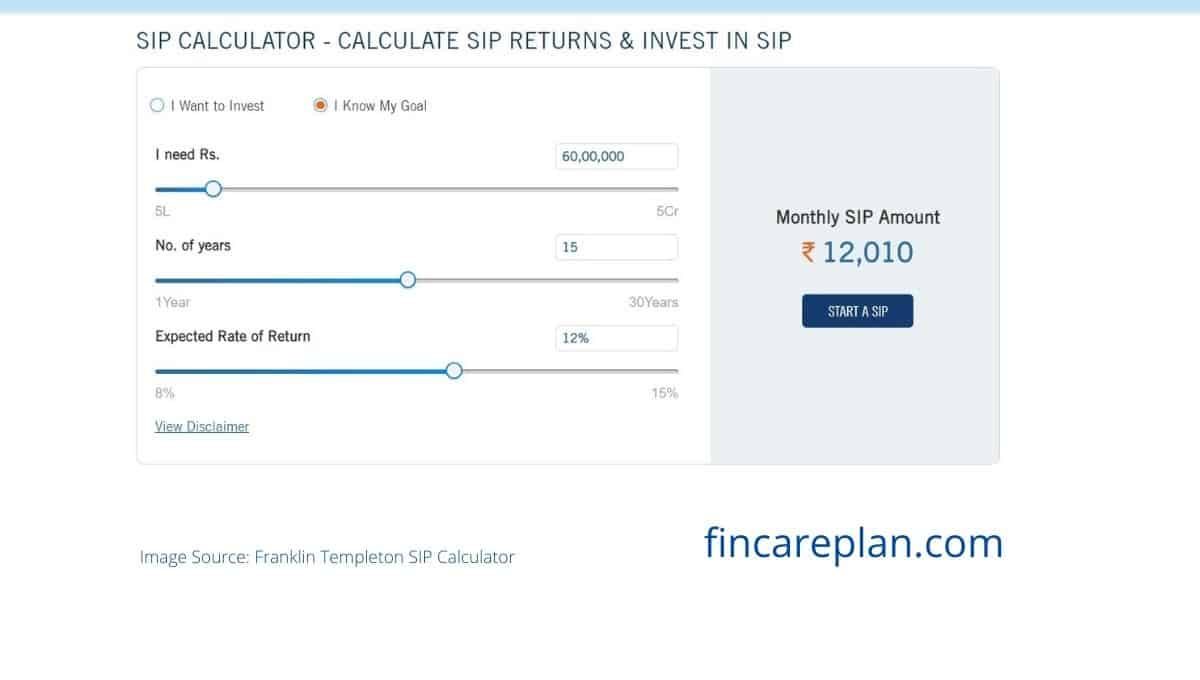Table of Contents
ToggleMutual funds are a 38.89 Trillion INR market as per AMFI India. In the last 5 years, this industry has grown by 2 times of value. There are 1000+ mutual funds and different types of mutual funds available in India. So, here we come up with how to choose mutual funds? Multiple parameters are involved in picking the right investment fund on emotional and fundamental measurables.
The emotional behavior accounts for the goal, returns, liquidity, etc. Whereas fundamental accounts for risk, tolerance, history of the fund manager, the structure of the fund, Performance, Portfolio of the fund, Expense Ratio, and finally, Plan (Direct or Regular).
It would help if you understood, the best can chosen when you have fewer options. So holding tons of options will end up not picking the right one.
How to Choose Mutual Funds for Beginners
Investment Goals
We have spoken quite a lot about Goal-based Investments. Yes, investment goal is the primary and most important parameter used for how to choose mutual funds. Investment becomes headless when it doesn’t have a goal.
There are three goals that you should park in your mind.
- Materialistic Goals (Dream Home, Dream Car, Retirement planning, etc.)
- Target on any Corpus(e.g., 5 Crores, 10 crores, etc.) with Timeline.
- Expected Return
Why do you need a clear goal/vision while investing?
Goals are like destiny and stand far from the starting point. So, if you don’t have clarity on your investment goal, you might fade away (exit from mutual funds) when you find volatility in the stock market.
For Example, Your Goal is to build a Dream Home in the next 15 years.
The total cost will be 60 lakhs to build your home.
Now, the hidden holes are either monthly investments or returns.
On average, mutual funds provide 12-14% returns in long run like 15 years (Sensex has performed 12.87% CAGR for the last 35 years).
With all the available data, we will be calculating the monthly investments with the help of the SIP Calculator.
So, using the SIP calculator, you have found the Target Monthly Investment.
Now, you are clear with your monthly SIP, Years of Investment, Expected Corpus, and expected average return annually.
When you get a clear picture of achieving your goal with some returns (% CAGR), you won’t become greedy, and choose mutual funds accordingly.
Liquidity
Liquidity is another indicator you should focus on before choosing mutual funds. Yes, we invest to grow the funds and withdrawal them when necessarily needed. This also depends on the investment goal, but we can’t predict our life or emergencies. So lock-in periods or any other closed-ended scheme would end up in trouble in that situation.
So, the fund that you choose should be highly liquidable, even if the goal’s tenure be 20 years later. We still recommend you save emergency funds, term insurance, and health insurance. These three will not trouble your goal-based investments.
The best place to park your emergency funds is Liquid funds, as you can redeem up to 90% of the fund within a single click. Still, any mutual fund you choose should be liquidable within 3 working days.
Returns
Every investor around the world needs returns and that’s what keeps them investing. No one will invest in any business, stocks, mutual funds, debt funds, bonds, fixed income, fixed deposits, etc. with low or negative returns.
The same applies while choosing a mutual fund. I could hear your mind’s voice, how can you calculate the future returns of any funds? Can we rely on the historical performance of a fund? Definitely Not, as history never returns when it comes to mutual funds investing.
There are a few factors, which you will be learning as you scroll down over the article.
Keeping these data in mind, you can analyze the current market scenario, the indices, and the past performance of similar funds. Mutual funds that yield 10%-14% CAGR are termed to be a good investment pick.
Risk Appetite
It’s like a worse decision in life if you choose a high-risk or volatile fund on the greed of high returns. These traps are often found in actively managed funds, skilled up by their marketing campaigns.
It’s you who should be aware of your risk appetite. I am not pointing out not to invest in high-risk assets. If you are capable of handling high risk and staying as a long-term investor, that’s well and good.
As you gone through the initial section on Goal-Based Investments, if you invest for a goal, then you will be ready with the return you expect. If you know, what will be your return, your risk appetite will be higher, and able to handle high risks too.
Investment Strategy and Asset Allocation
Investment Strategy and Asset Allocation are some of the prime factors you should learn if you think about how to choose mutual funds. Unfortunately, many investors don’t have a sharp eye on this parameter.
Investment Strategy deals with what are the sectors they hold in the portfolio. Is equity the asset they invest, or other securities like bonds, the money market is involved in asset allocation.
It would be best to analyze the volatility ratio compared to an index how many index stocks are in the asset allocation of the fund managed. If you can further research stock-wise, it would be well and good. At least try to analyze the strategy fund manager is employing in investment.
Fund Performance and Fund Manager History
History doesn’t repeat. Yes, but in the journey of how to choose a mutual fund, you should light upon funds performance and Fund Manager history.
Every fund manager would have history and hold at least 1 fund of prior experience. Therefore, you will get the complete detail of your fund manager, which funds they have managed earlier. Find out what are their best performing mutual funds.
Check how those funds it has performed in the last 5 to 10 years. Did the fund over/underperform indices? Have the fund’s volatility is relatively equal or 2x times higher than indices.
If you choose any fund that’s been in the market for the last 5+ years, you can check each fund’s performance and risk ratios. You can get the details like the risk ratio of any fund from websites like Morning Star and Money Control.
Only one thing you should keep in mind. Never choose mutual funds with start ratings offered by AMC or mutual fund broking companies.
Active Funds vs Passive Funds
If you have done extremely well on the above six points on how to choose mutual funds, then the forthcoming points will be of bouns. Active vs passive mutual funds are a hugely debated topic.
Value investor like Warren Buffet has challenged actively funds that, “Passive funds will overperform actively managed funds in long term”
As we clearly mentioned, mutual funds can be beneficial only for long-term investors. If so, are promoting only passive funds? Definitely Not.
On a major scale, passive funds can overperform active funds. Still, there are many active funds, that perform well than indices even in long term. Might be their risk ratio would be high.
The biggest benefit passive funds have is the lowest expense ratio among all the mutual funds in India.
Expense Ratio
Expense ratios are like service charges or commissions we pay to the AMC (Asset Management Company) as an investor. The expense ratio is charged in percentages ranging from 0.1% (min) to 3% (max), including the fund manager and team payments. Yet the rates influence fund performance.
When a fund returns 10% CAGR to investors annually, the actual performance would be 10.5% to 13%. The difference in performance is the expense ratio. So, if all the above parameters are passed, filter the fund with a low expense ratio.
Entry and Exit Loads
Entry load is paid by investors while investing in a mutual fund. Most of the AMC have removed the entry loads. From 1st July 2020, every investor pays 0.005% as stamp duty charges for any amount invested.
Exit loads are generally charged only to short-term investments in mutual funds. If you are a long-term investor, you can avoid entry and exit loads.
However, Fincareplan advises you to choose mutual funds with minimal or nil entry and exit loads.
Direct or Regular Funds
Every AMC provides an option of investing with the help of a broker or investing directly in funds. When you invest with the help of brokers/sub-brokers, then the mutual fund’s plan will be Regular. However, if you invest in any mutual fund directly, the plan is Direct.
If you are well-versed with all the above points on how to choose mutual funds, then you can go with the Direct plan.
If you find following the above points and choosing the correct mutual fund will be hard, then go for regular funds.
The expense ratio in the Direct fund will range between 0.1% to 1.5%. In comparison, the expense ratio of Regular funds range between 1.25% to 3%.
If you need help making you understand the above points, you can contact our team. We will help you invest in direct funds.
Taxes
This one is common with every mutual fund in India. You are not taxed for the principle you invested. But, the returns (other than capital) are taxable according to Government of India.
Still, the government provides an exception for the long-term investor (investment holder more than 12 months). If your mutual fund investments are not redeemed with you 12 months, your tax slab comes under Long Term Capital Gains (LTCG).
Under LTCG, the tax is 10% of the returns. If you redeem before 12 months, you are not eligible for LTCG and the tax rates will be 15%
Tax is collected only if the returns are more than 1 lakhs.
In the case of Debt funds, the LTCG applies only when the investments are on hold for 3 years.
Key Takeaways
- I hope this article on “How to choose mutual funds in India” has added value to your investment journey.
- Investment Goals, Liquidity, Returns, Risk Appetite, are the parameter that deals with your emotional behavior.
- Fund behavior can be analyzed by Investment Strategy, Asset Allocation, Fund Performance and Fund Manager History, Active vs. Passive funds, Direct vs. Regular Plan, Expense Ratio, Exit and entry loads, etc.
- If you still find queries on how to select mutual funds for investment in India, contact our expert team. We will guide you on personal financial planning and Investment planning
Frequently Asked Questions (FAQ)
How to Choose Mutual funds for Beginners?
As a beginner, you should be sure of your Investment Goal and Risk Appetite. Investment Goal will provide the tenure you look to invest. Risk appetite will ensure the risk level of any fund to choose. High-risk high reward, low-risk low reward, moderate risk moderate reward.
It would help if you stayed as a long-term investor in any equity mutual funds to attain a 12-14% CAGR return.
How do I Choose the Right Mutual Funds?
You can choose the right mutual funds by analyzing the parameters like fund manager historical performance, risk ratios, expense ratio, liquidity, asset allocation, direct plans.
The most important parameter can be going with passive funds (index funds) if you have a low-risk appetite and hold them for the long term.
Which Mutual Funds is best for Beginners?
We would recommend Index funds with SIP would be the best mutual fund for beginners, as the expense ratio is low, and performance will be similar to indices. The returns will be 12%-13% in long term (20 – 30 Years).
Still, if you look for actively managed funds, look at the investment strategy and asset allocation, expense ratio, fund manager performance in history, liquidity, and finally direct fund to choose the fund.

